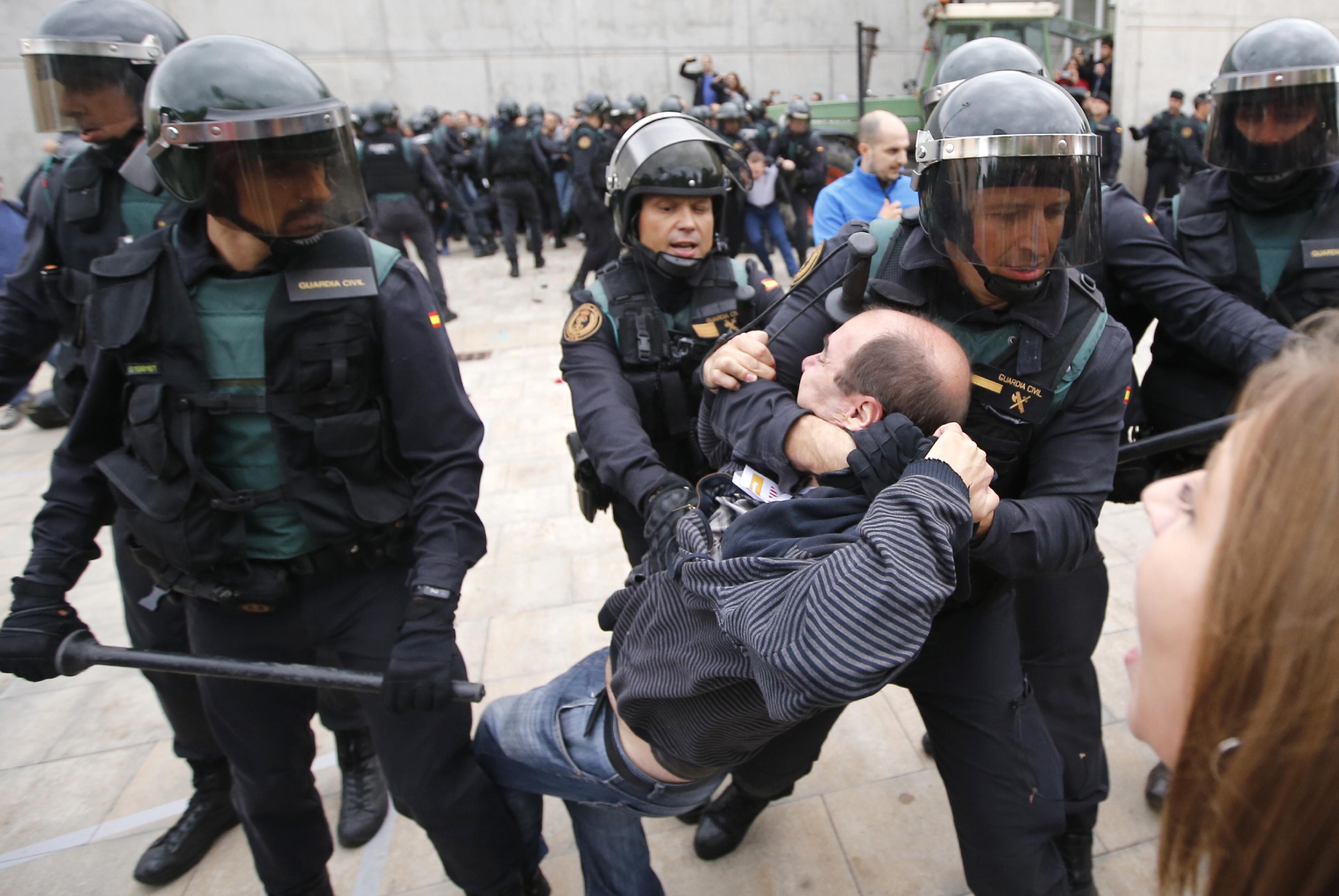Horrific scenes are playing out across the Catalonia region in northeastern spain on Sunday as Spanish police used violence to try to prevent voters from heading to polling stations in a disputed independence referendum. As of early afternoon, the Catalan health ministry said at least 465 people had been injured by police violence. (UPDATE at 5 p.m.: A total of 844 people required medical assistance “as a consequence of the actions of the Spanish police,” according to the regional government). Police officers brought from outside the region were fulfilling orders from the Spanish government to stop the vote in Catalonia, which was declared illegal by the country’s top court. Almost half of all injuries took place in Barcelona, the regional capital.
At some schools that were being used as polling stations, police used axes to smash their way inside before charging into crowds and even in some cases firing rubber bullets. Catalans shouted “out with the occupying forces!” and sang the anthem of the region as a show of defiance.
Videos and photos making the rounds on social media show police officers violently beating and dragging peaceful protesters out of polling places, at one point even apparently hurling voters down a flight of stairs. Photos show elderly voters with blood pouring down their faces. Spain’s interior ministry said at least 11 police officers were also hurt in clashes with protesters and three people were arrested.
“One policeman put me in a headlock to drag me out, while I was holding my wife’s hand! It was incredible. They didn’t give any warning,” Daniel Riano, 54, told the Associated Press. Another voter, Júlia Graell, told the BBC that “police started to kick people, young and old.”
Although polls show a minority—some 40 percent—of Catalans support independence from Spain, the majority do support a referendum on the issue. It seems inevitable though that the pro-independence camp will win the referendum considering that those who are against it are unlikely to risk violence in order to cast their ballots.
Carles Puigdemont, the head of the regional government, blasted the Spanish government for using “unjustified, irrational, and irresponsible violence” against voters and said it would only harden the pro-independence desire of the citizens. “Today Spain has lost even more that it had lost until now and the citizens of Catalonia we’ve achieved even more than we’ve had achieved till now,” he said.
The Spanish government, however, is defending the actions of the police. Spain’s deputy prime minister, Soraya Saenz de Santamaria, harshly criticized the Catalan regional government for its “absolute irresponsibility” in allowing the vote to go ahead. A senior European official took to Twitter to point out that while the Spanish national government “is legally right” about the referendum “excessive actions might endanger its legitimacy.”
